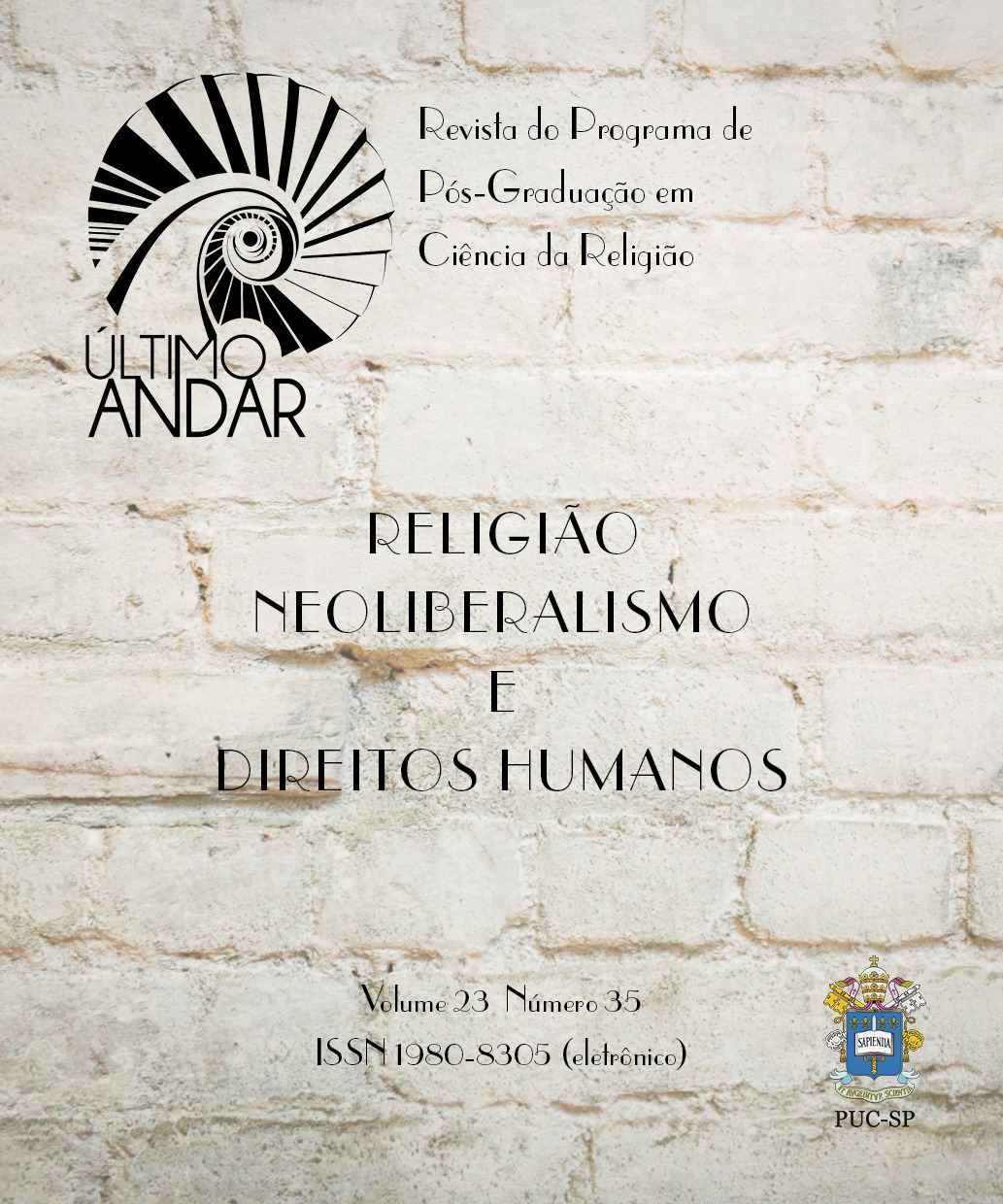ARE RELIGIOUS EXPERIENCES TOO PRIVATE TO STUDY?
DOI:
https://doi.org/10.23925/1980-8305.2020v23i35a9Keywords:
Experiência religiosa, novo materialismoAbstract
Quando uma Cristã carismática tem uma experiência religiosa na qual ela encontra Jesus como seu marido/amante, muito dessa experiência é público em sua natureza.[1] Por exemplo, seu corpo se mantém em uma postura particular durante a experiência e esta postura é observável. Além disso, se ela relatar isso a alguém, seu depoimento, seja verbal ou escrito é de domínio público. E até mesmo os conceitos que ela traz consigo na experiência, como Jesus, Deus, amor e etc., são públicos enquanto são compartilhados e apreendidos através de processos sociais dos aprendizados de linguagem. Porém, além disso, parece que algo sobre a experiência é privado em sua natureza, experimentada por ela sozinha, distante da esfera pública. Apenas ela sabe realmente como sentiu-se durante o evento. Apenas ela tem a consciência se realmente teve uma experiência ou se ela está mentindo sobre o que ocorreu. Alguns aspectos da experiência ocorrem na privacidade da consciência subjetiva, aparentemente num reino invisível, inacessível.
[1] Tais experiências são recontadas em: R. Marie GRIFFITH. God’s daughters: Evangelical Women and the Power of Submission. Berkeley, University of California Press, 1997.
References
BUSH, Steven. Are Religious Experiences Too Private to
Study? The Journal of Religion, 92, No. 2, p. 199-223 [April 2012)].
Downloads
Published
How to Cite
Issue
Section
License
The Authors maintain the copyright and grant the journal the right to first publication, with the work simultaneously licensed under the Creative Commons Attribution License that allows the sharing of the work with acknowledgment of authorship and initial publication in this Journal.
Authors are authorized to assume additional contracts separately, for non-exclusive distribution of the version of the work published in this journal (eg, publishing in institutional repository or as a book chapter), with acknowledgment of authorship and initial publication in this journal.
Authors are allowed and encouraged to publish and distribute their work online (eg in institutional repositories or on their personal page) at any point before or during the editorial process, as this can generate productive changes, as well as increase impact and citation of the published work.


